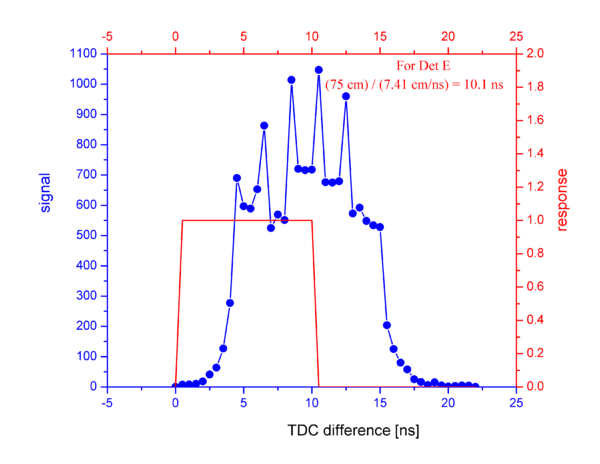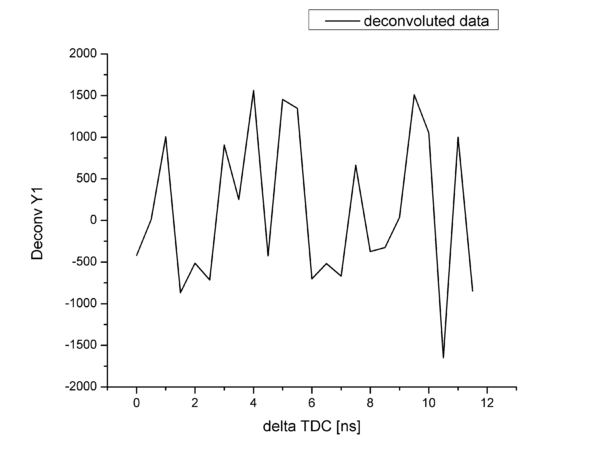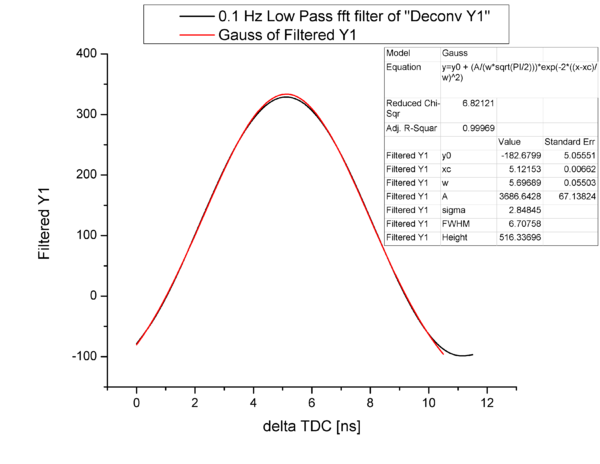Difference between revisions of "2n Position resolution"
Jump to navigation
Jump to search
| Line 3: | Line 3: | ||
[[File:sig_resp2.png | 600 px]] | [[File:sig_resp2.png | 600 px]] | ||
| − | FFT of | + | Raw data of FFT deconvolution of signal function and response function is presented below: |
| − | [[File: | + | [[File:FFT_sig_resp_deconv.png | 600 px]] |
| + | |||
| + | It can be seen the high frequency noise component in the raw data. Applying low pass filtering we could get the deconvoluted data: | ||
| + | |||
| + | [[File:FFT_sig_resp_deconv_filter.png | 600 px]] | ||
Hence, any coordinate of the neutron hit has the following uncertainty in: sigma = 5.15 ns and its value converted into cm is 5.15 ns x 7.41 cm/ns = 38.2 cm. The total length of the active area of the neutron detector is 75 cm. | Hence, any coordinate of the neutron hit has the following uncertainty in: sigma = 5.15 ns and its value converted into cm is 5.15 ns x 7.41 cm/ns = 38.2 cm. The total length of the active area of the neutron detector is 75 cm. | ||
Revision as of 16:37, 5 April 2013
Experimental distribution of TDC difference time spectrum (blue) and ideal response function (red) are shown below:
Raw data of FFT deconvolution of signal function and response function is presented below:
It can be seen the high frequency noise component in the raw data. Applying low pass filtering we could get the deconvoluted data:
Hence, any coordinate of the neutron hit has the following uncertainty in: sigma = 5.15 ns and its value converted into cm is 5.15 ns x 7.41 cm/ns = 38.2 cm. The total length of the active area of the neutron detector is 75 cm.


